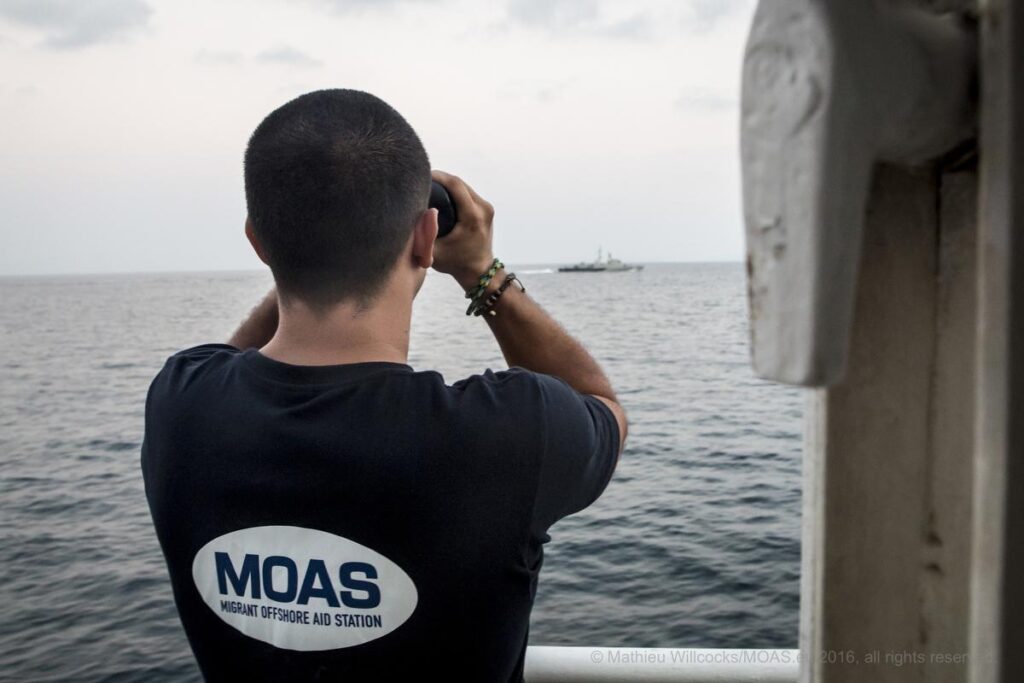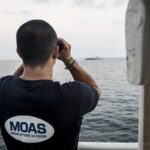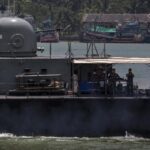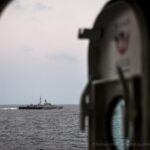The Migrant Offshore Aid Station (MOAS) ends sea mission in South East Asia due to delays in the release of drones. The MOAS ASIA mission will continue to use its ground network and advocacy.
The MOAS search and rescue vessel, MY Phoenix journeyed to the Andaman Sea in 2015 to begin a fact-finding mission focused on the plight of ethnic Rohingya forced to flee Myanmar and Bangladesh by sea.
The plight of the Rohingya, labeled “the world’s most persecuted people,” has festered since Myanmar authorities stripped them of citizenship by law in 1982. Since then, hundreds of thousands of Rohingya have been forced to flee to neighboring countries, often via long journeys by sea. Untold numbers of Rohingya men, women, and children fell victim to brutal human trafficking networks and complicit government officials in neighboring countries, resulting in slavery, death, and cruel treatment
During the past six months, MOAS representatives met with the Thai military and government authorities, as well as with well-placed counterparts in Malaysia to discuss the full scope of the fact-finding mission, our goals and procedures. Discussions were held at all levels and these included coordination for eventual rescues. In all meetings, Thai authorities were interested and supportive of the need to collect data and save lives at sea.
Despite the unfortunate end of the sea mission, MOAS achieved several accomplishments in creating a Southeast Asia mission focused on mitigating loss of life at sea. MOAS created a robust early warning network to not only measure movement at sea but also to document human rights abuses in Bangladesh, Myanmar and Thailand. Additionally there have been substantive discussions on the search and rescue protocols and clear understanding of disembarkation, including official offers of assistance in the Thai Search and Rescue (SAR) region. MOAS was a visible presence in the Andaman Sea, bringing attention and direct SAR action in support of the Rohingya community and others who may find themselves in distress.
However, this effort was frustrated in the past weeks by systematic delays by Thai authorities in the release of two drones intended for use in SAR operations in the region—Schiebel S-100 Camcopters intended for agreed flight operations to cover the vast area of interest. Customs officials held the drones for over a month despite various assurances from representatives at various levels of government.
As a result, MOAS is unable to conclude this year’s mission—a planned fact-finding mission at sea that would have provided stakeholders with an invaluable pool of as yet unavailable data.
In light of this situation, and the fact that the monsoon season is approaching, MOAS has no option but to scale down its mission to a two-week operation off Ranong in southern Thailand—a well-known center of human trafficking.
Since 2014, MOAS has saved over 13,000 lives at sea and works with all stakeholders wherever it operates.
According to MOAS founder Christopher Catrambone “With the weather window for movement closing out, we have taken the decision to curtail the maritime search and rescue portion of our operation in SE Asia. We are proud to have created new avenues of discussion with stakeholders and are satisfied to have brought additional awareness that will benefit all who need our support, especially the persecuted Rohingya. We will persevere with our efforts in the region to ensure that the value of human life is upheld and that Nobody Deserves to Die at Sea.”
MOAS remains undeterred and committed to the region through ground research and support of advocacy in Myanmar, Bangladesh and Thailand being carried out on its behalf by the NGO Migrant Report. This will maintain our situational awareness and provide a platform for future sea missions.
The Thai government has taken a hard line against human traffickers and has put Former Thai army Lt. Gen. Manas Kongoaen and 91 other defendants are currently on trial in Bangkok. He and others were arrested in June 2015 after evidence and mass graves of migrants were discovered in Songkhla Province.
“Now is an important time for Thailand to demonstrate its commitment to protection at sea,” said Matthew Smith, Executive Director of the international human rights organization Fortify Rights, upon learning about the end of the MOAS sea mission. “Preventing this mission from proceeding serves no strategic purpose. Any government obstruction of MOAS’s work reflects poorly on Thailand’s record to combat human trafficking and ensure protections.”
The mission of MOAS in conjunction with Fortify Rights was mentioned in front of the U.S. Congress on March 22 as a positive step towards improving Thailand’s status as a Tier-3 ranked country in the U.S. Department of State’s annual Trafficking in Persons (TIP) report. Matthew Smith told the U.S. Congress
“Thailand’s cooperation and coordination to support search and rescue operations at sea, including with the U.S. government and with private operations such as the Migrant Offshore Aid Station (MOAS), is a positive indication of Thailand’s recognition of the importance of protection in combating human trafficking. MOAS has been engaged in mitigating loss of life in the Mediterranean Sea since 2014 and, in coordination with local navies and maritime forces, relies on state-of-the-art drones to monitor ships potentially engaged in human trafficking or transporting refugees. The cooperation and support of Thailand’s Navy and other levels of government in MOAS’s mission is encouraging. Recognizing the unique technical expertise that MOAS brings to Southeast Asia, Fortify Rights hopes to see continued cooperation with the Thai authorities to ensure the MOAS mission is fully supported and proceeds as planned.”
– March 22, 2016 Testimony by Matt Smith to the HOUSE COMMITTEE ON FOREIGN AFFAIRS Subcommittee on Africa, Global Health, Global Human Rights, and International Organizations in Washington DC.
http://www.fortifyrights.org/downloads/Testimony_20160322.pdf




